Well then, you want to be a hacker, and you are confused about where to start?
Well, do not worry, everybody can totally hack—well, he or she wasn’t born a tech prodigy. Check out this great step-by-step guide that will help you learn very basic coding to get your mind in the correct mindset and take those new skills to the next level. Pretty soon, you’ll find yourself on your way to become one of the hacking gurus.
Getting Started with the Basics:
1.Unix-Based Operating Systems:
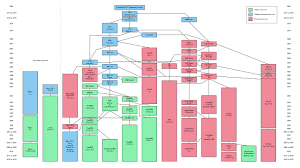
First, you have to get into a Unix-like operating system. You may know a small part of Unix and live a good life with the Internet, but once you are a hacker, you have to use Unix. Modern Hacking’s hacker culture is Unix-centric, so getting familiar first will be a great first step.
There are a billion different UNIX-like operating systems out there, but Linux is probably the best known. One can run Linux alongside Windows inside the same machine. It is possible to download it for free from the Internet or simply find yourself a local Linux users’ group which can help you understand how to install it.
You can just dip your toes in with a Live USB or CD. This will allow you to run Linux from a USB or CD, without even touching your hard drive in any way—no commitment required!
There are other related Unix-like operating systems in the *BSD family: FreeBSD, NetBSD, OpenBSD, DragonFly BSD. All of them are free licensed, but not Linux.
You might not even realize that if you’re running a Mac, you’re already running under a Unix-based operating system, with macOS laid on top of Darwin and FreeBSD. Add Homebrew, Fink, or MacPorts to the mix and you actually have package managers to use. And you can even install Linux alongside macOS.
For something more niche, you could try OpenIndiana, based on the open-source release of Solaris. But honestly, sticking with macOS, BSD, or Linux is usually your best bet since they’re more popular and have a lot more software options.
2. Learn HTML:
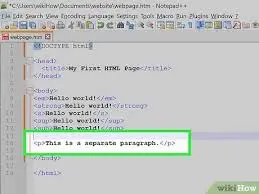
Once you have that installed, we can dive into the language of the web: HTML. You can literally see just about everything you see on a website—images, pictures and design—using HTML.
Start with something incredibly simple, like creating a basic home page, and scale up from there.
You also want to go view the source code of other people’s web pages out in the wild.
You can, for instance, do this in Firefox under the Web Developer menu by going to Page Source and seeing how it’s all working with the HTML.
Can you write the real HTML in basic text editors like Notepad or SimpleText?
You just write the code, save the document as “yourCoolFileName.HTML,” and open it in your browser.
3.Learn to Code:
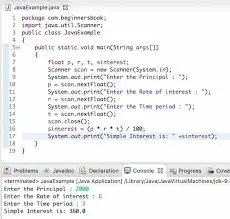
Then you learn to program. Think about it like learning grammar before you start writing poems. You don’t know the rules before you break them. Python is a perfect first language because it is clean, documented, and friendly for greenhorns. Don’t be fooled, though—strong, useful for big projects.
Eventually, if you get really serious about programming, you may want to learn Java. Although Java need not be a first language, it is still good to learn. Other must-learns include JavaScript in case you are into web development or hacking.
If you have nerves of iron, you can dive into C or C++; either has very similar syntax. C is very resource-efficient with your computer but a real pain to debug. If you need efficiency, though, C is your destination. Just be prepared to drop a little time into it.
Consider giving Backtrack 5 R3, Kali, or even Ubuntu 12.04 LTS a try; these are decent enough tools to start hacking with.
Tip:
Web Protocols, including but not limited to HTTP/2, HTTP/3, how browsers do this internally—the equivalent of the deep waters into which only a few hackers go. WebSocket’s and server-sent events not as ubiquitous technologies as some others, generally, but they can open key security holes. You can specialize in API Security. And, of course, take part in web security competitions for that crucial real-world practice.
Adopt the Hacker Mindset:
1. Think Creatively:
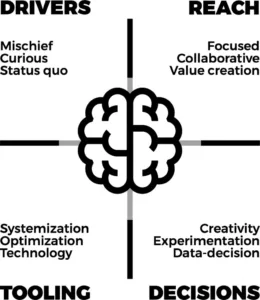
When you get the basics covered, now turn on the creative bulb. Hackers represent a combination of an artist, a philosopher, and an engineer in one person. They are fond of trying to solve interesting problems, which develops skills and sharpens intelligence.
A different breed, hackers are described as having a culture of open sourcing everything.
Hard work and hard play:
For real hackers, the lines between work, play, science, and art become one big, creative playground.
You can even take up a martial art. The mental discipline instilled in martial arts strongly resembles what hackers need. As a matter of fact, any kind of martial art is fine, but especially for the physical discipline and mental relaxation, something like Tai Chi is nice, suitable for hackers.
2. Love Problem Solving:
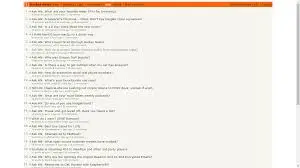
Hackers consider it settling an issue once and having the solution shared with the community. When you do that, you share your solutions to aid those around you.
Not everything you do for work has to be free, but hackers that sell their work always value much the notion of giving it away for free, and that is the right thing to do. Not that there’s anything wrong in selling some of what you do in a bid to support yourself.
Read some classics on hacking, such as “The Jargon File” or “The Hacker Manifesto” by The Mentor. They may be pretty dated on technical stuff, but as far as spirit and attitude go, they’re as relevant now as ever.
3. Challenge Authority:
The spirit of hackers to oppose is to routinize boredom, drudgery, and also authoritarianism. They stand for the free flow of information and abhor the censorship done on information. The Internet is a level playing field, for truly it appreciates competency over ego. Zero in on the honing of your skills, not your image, and you will earn respect much faster.
Hacking Well:
1. Write Open-Source Software:
Create programs that other hackers find useful or with enjoyment and share them with the community. The most prestigious hackers are those who write potent, widely used software and give it away for free.
2.Test and Debug Open-Source Software:
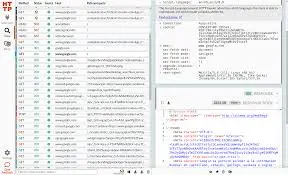
Good beta testers are worth their weight in rubies. They can explain symptoms, localize bugs, and run simple diagnostics. You may start testing the programs that interest you, and with experience you can also sort through the bug reports and may even make some small patches or suggest some kind of workaround for a problem. This way you will also be able to learn more about programming and increase the good will within the group. Gather and organize useful information as FAQs or web pages, then distribute widely. The maintainers of key technical FAQs receive as much respect as authors of open-source software.
The hacker community, and even the Internet as a whole, has long since recognized its dependence on volunteers. There’s quite an amount of unglamorous but useful work to be done, and there’s quite a scarcity of people to do it. This can be a very valuable investment of your time if you want to learn more than software, because good software maintainers know code as well as applications, and make better and better software over time.
3. Serve the hacker culture:
This is something you’ll only be in a position to do after you’ve been part of the hacker culture for a while—maybe 5 or 10 years. While hackers don’t have leaders, they do have respected elders whose advice is valued. Don’t seek out this kind of fame; instead let it come to you naturally and be humble and gracious when it does.
Conclusion:
Hacking can be fun and an adventure. Everything depends on the technical skill sets and the creative mindset which the person has in possession. First of all, learn the basics study Unix-based systems and the basics of programming using Python, HTML and other languages. Join the group through one’s activity and put forth an opinion with open-source projects, testing software in public beta stages, helping, or contributing to the help of others.
Remember, hacking is also about solving problems, besides learning. With that commitment, and a curious soul like yours, you are going to build up your skills to be one of the sons who are amongst the prominent lot in the community of hacking. Enjoy the journey, keep exploring.





